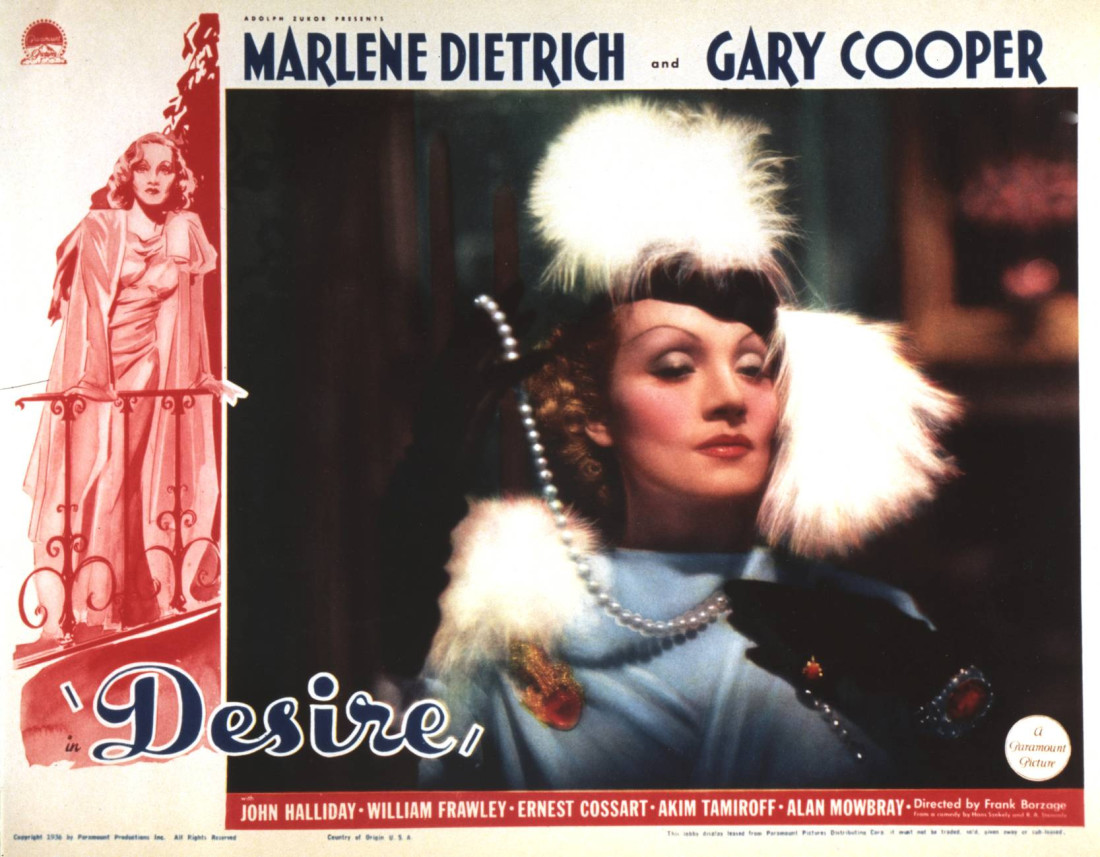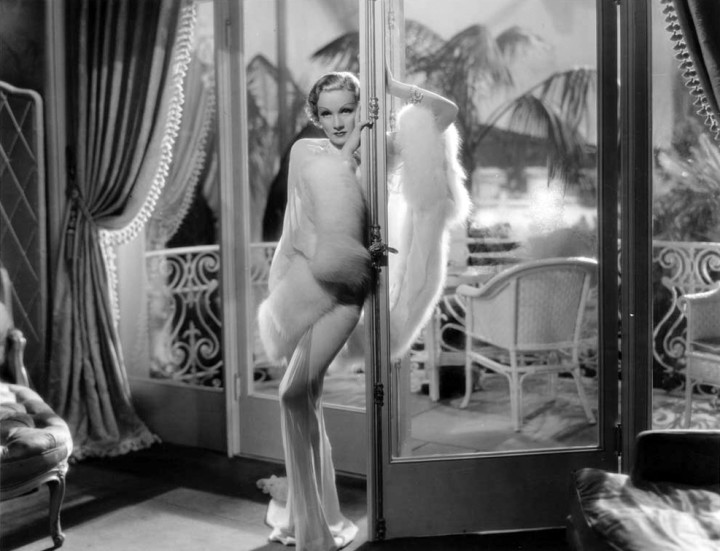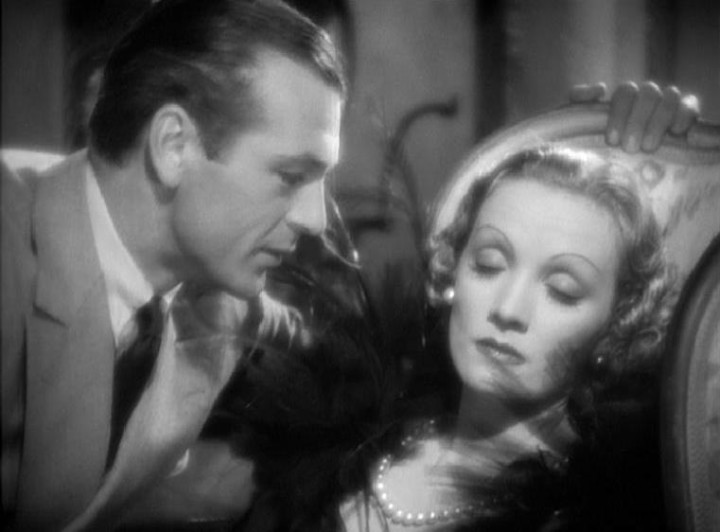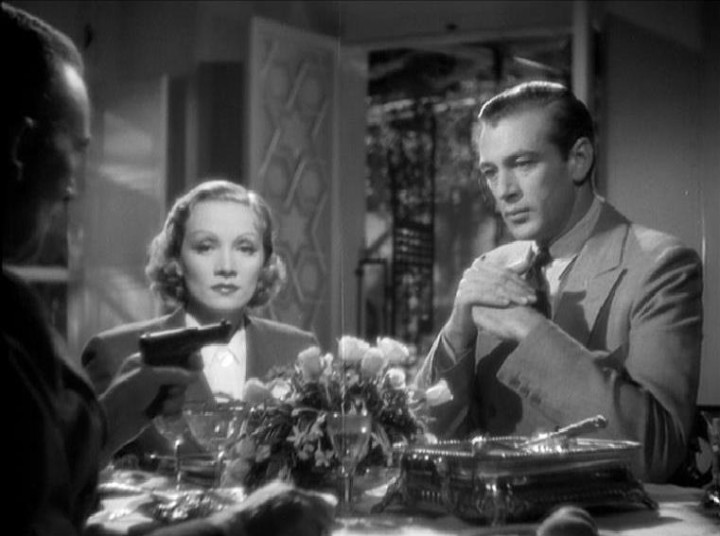Cooper had co-starred with Dietrich in her first Hollywood film, Josef von Sternberg’s Morocco (1930), and it was widely assumed that this was not an experience he cared to repeat. It turned out that it wasn’t Dietrich he’d found troublesome, but Sternberg. That’s not too surprising, since even in the 1950s when Sternberg was taking whatever work he could get, he managed to make John Wayne say, “He scared the hell out of me.” (It came as a shock to Cooper when Sternberg asked him to write the foreword to Sternberg’s autobiography.) The idea of working with Dietrich — especially in a soufflé of a film like this — was appealing to him. That the role of Tom Bradley was the sort of thing he was particularly good at helped. The scene where his adversary (John Halliday) notes, “It would be wrong to underestimate America — it’s a big country,” and Bradley responds, “Six-foot-three,” is quintessential Coop.
The film is an odd affair from the standpoint of its production. It was made during the era when Ernst Lubitsch had accepted the position as head of production at Paramount — a job it’s tempting to think he took for no other reason than to pay back Sternberg for a remark he’d made years earlier (dismissing Lubitsch’s 1928 film The Patriot as “scheisse”). Taking the position made Lubitsch Sternberg’s boss. What that meant is really another story for another time, but before it was over, Sternberg was gone from Paramount and Lubitsch found himself less than happy producing other people’s movies. This had happened once before when George Cukor was supposed to direct One Hour With You (1932) with Lubitsch producing. It wasn’t long before Lubitsch took over the directing. Nothing that extreme happened on Desire with Frank Borzage, but it was in the same neighborhood.
The results are a hybrid of the two directors — an appealing hybrid, but a hybrid all the same. In matters of sex and larceny, Lubitsch can only be described as cheerfully amoral. Borzage, on the other hand, was something of a moralist — not a heavy-handed one, but the tendency was always there. Had Desire been all Lubitsch, the scenes involving the Dietrich character’s regeneration would almost certainly have been in a much lighter tone. The material would have been similar, since the production code had changed things in between Lubitsch’s last directing job and this one, but Borzage takes these later scenes very seriously. In the end, you have a movie that feels like Lubitsch for three-quarters of its length and like Borzage in its home stretch, but with a typically sly Lubitsch spin at the very end. For Dietrich, the film was important in that it answered the question of whether she could have a screen life after Sternberg. Her one previous attempt at working with another director — Rouben Mamoulian’s Song of Songs (1933) — had been a flop at the box office. This new Dietrich — lighter, funnier, but just as alluring — was exactly the transition she needed. (Sternberg’s future was less rosy.) It remains one of her most purely enjoyable films.
The Asheville Film Society will screen Desire Tuesday, Nov. 24, at 8 p.m. in Theater Six at The Carolina Asheville, hosted by Xpress movie critic Ken Hanke.







Before you comment
The comments section is here to provide a platform for civil dialogue on the issues we face together as a local community. Xpress is committed to offering this platform for all voices, but when the tone of the discussion gets nasty or strays off topic, we believe many people choose not to participate. Xpress editors are determined to moderate comments to ensure a constructive interchange is maintained. All comments judged not to be in keeping with the spirit of civil discourse will be removed and repeat violators will be banned. See here for our terms of service. Thank you for being part of this effort to promote respectful discussion.